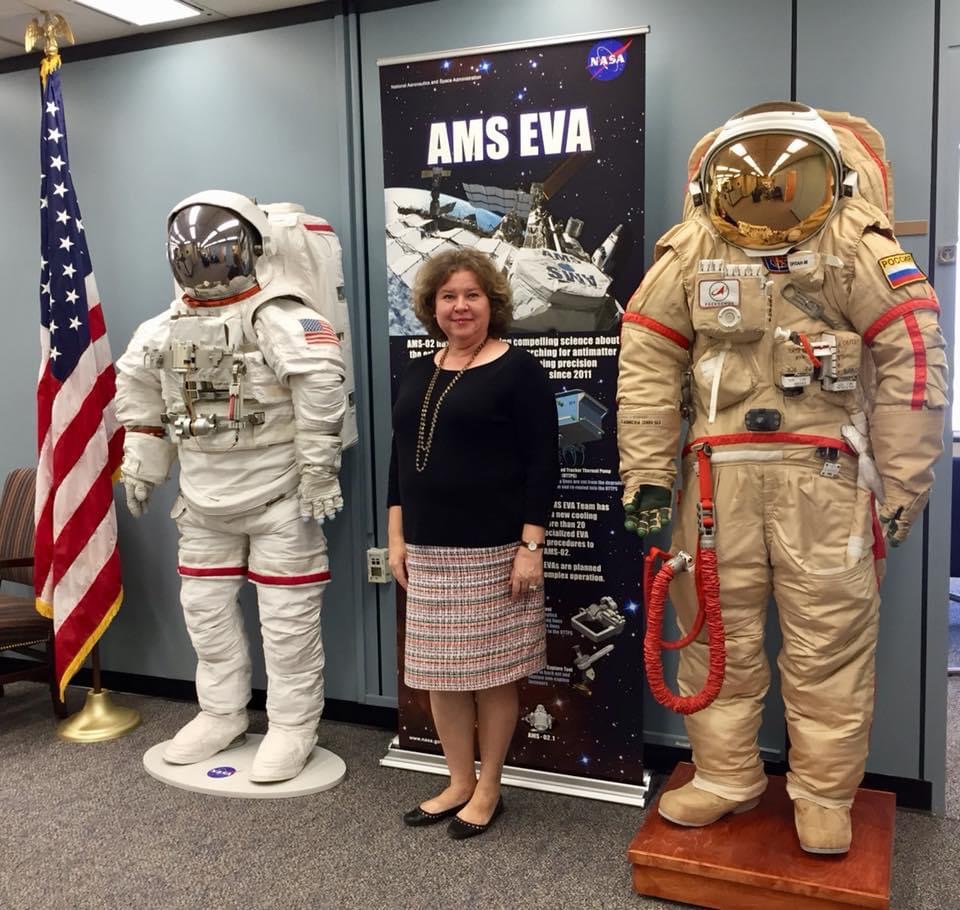
How Enhancing Cross-Cultural Understanding Can Benefit Your Park’s Business
Irina Yashkova, OHP, who co-owns ARVC member-park Seahaven Marine RV Park in Sneads Ferry, N.C. with her husband Kal Karmous, has quite a fascinating background. She was born in Siberia, has worked for NASA for the past 20+ years as a professional simultaneous interpreter, liaison and cultural adviser for the International Space Station, and is an expert and trainer in cross-cultural communications.
“I think that as campground owners, we need to be very adaptable and develop an awareness of different styles of communication and listening,” she says. “Cross-cultural communications are not just about cultures in terms of what countries people are coming from. It’s also about the culture of how people operate and how they perceive the world.”
Yashkova is a certified trainer in The Lewis Model, which is designed to help clients better understand culture, starting with their own, then apply what they’ve learned to improve their business relationships. Course participants usually start by taking an online personal cultural self-assessment, called CultureActive, and get debriefed on this during the session.
“The Lewis Model was created by Richard Lewis, who is a cross-culturalist based in England who was a personal tutor to the Japanese Imperial Family many years ago,” she says. “He has also traveled to around 135 countries and worked in about 20 of them.”
Based on his experience with different cultures, Lewis identified three types of cultural classifications, each with unique characteristics, and offered insights into how to work with each group:
- Linear-active: These individuals are task-oriented, very organized and prefer to do one thing at a time. This group comprises much of the English-speaking world.
- Multi-active: This group likes to do many things at one time. Family, relationships and people in general are very important to them. Individuals from Latin America, Southern Europe, Mediterranean countries, sub-Saharan Africa, the Middle East, India and Pakistan often fall within this category.
- Reactive: Seeking harmony and not losing face is extremely important to these individuals who often come from major countries in Asia. They are good listeners who rarely initiate action or discussion, preferring to hear the other person’s position, then form their own opinion.
She shared examples of how it can be helpful to understand a guest’s cultural classification type when working with them.
Linear-active
“We had a gentleman who was booking a site. He was a first-time RVer and he called us six times. He was asking ‘What’s the diameter of the hoses? What’s the water line like? How do I orient myself?’ We recognized that he was not doing this to irritate us or waste our time. He was perceiving the world in linear-active terms. My husband, who is an engineer, spent 45 minutes discussing different specifications with him. In the end, he said we were the best RV park he ever contacted. He was extremely satisfied and I’m sure he’ll be a repeat customer because we spoke his language.”
Multi-active
She also shared a story about how they resolved an issue with a multi-active group by appealing to what was important to them.
“We once had a large family group, who came after hours around 10 o’clock. There were probably about 12 of them and they were loud. If I had come to them and said, ‘You’re breaking the rules of our quiet hours,’ that would not have gone well with them, because family was important to them. They had people driving for two hours and they wanted to make sure they arrived safely and would be well taken care of. So, we recognized that and said, ‘We’ll take over from here and take good care of your family.’ We also explained that we had several families around them with small children and they immediately understood, so we settled them in within about 15 minutes. The next day, they invited us to share dinner they cooked on the grill and said we were the best campground for them.”
Reactive
“When you have reactive people who come and stay with you, they’ll never say a word. They’ll never complain. And then you find out on the online review that they were extremely unhappy because that’s how they communicate. They were not able to come and confront you. So we create opportunities for people like that to comment, in private, if there’s anything we can do to improve to make their experience better.”
Recent research published in the Harvard Business Review has shown that mirroring the communication style of your counterpart can double your chance of success.
“As campground owners and managers, we need to speak the language of our guests,” Yashkova says. “We need to open our eyes to the way we communicate, the way we’re perceived by others and the results we want to achieve together.”
The key is:
- Know yourself
- Enter the world of those you need to influence
- Act on that knowledge and adapt!
If you’d like to find out more about The Lewis Model, CultureActive and training programs, you can contact Irina at iyashkova@hotmail.com or 713-870-0398.

